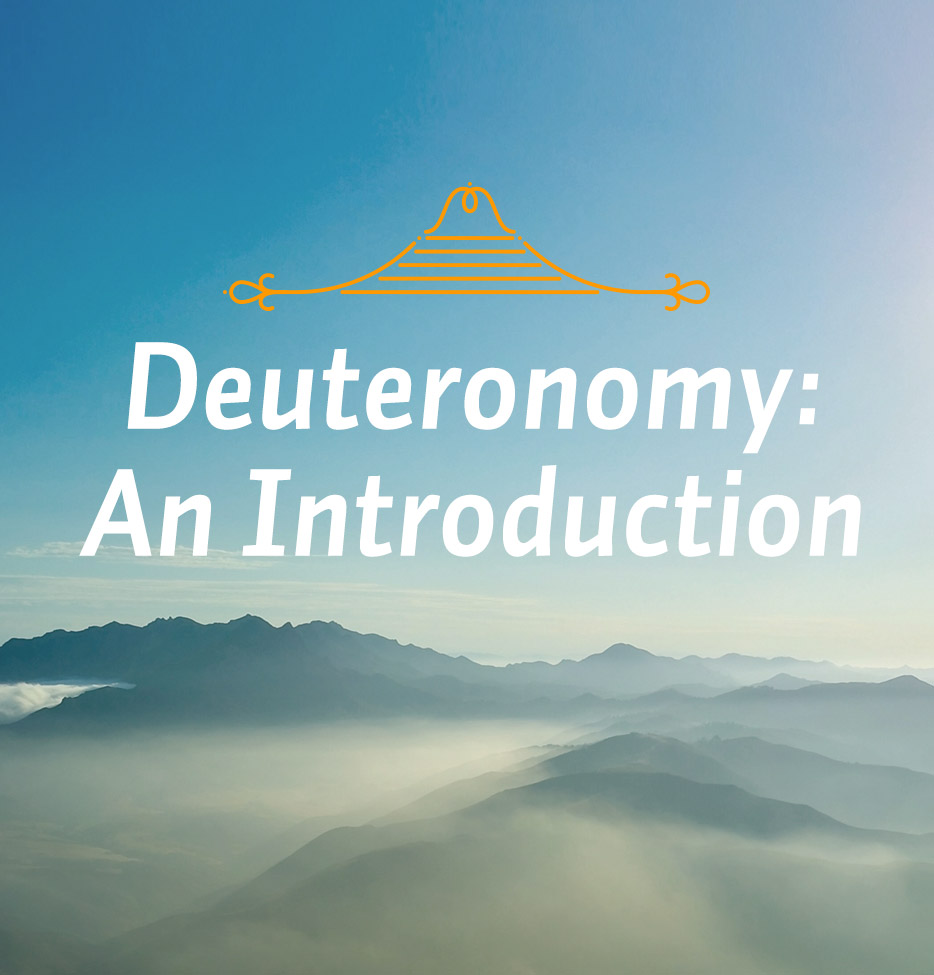The second address is a much longer one, amounting to twenty-two chapters and making up the substance of Deuteronomy. The first part (Deut. 5-11) reiterates the law of God as it bears on the people’s relationship to God. The second part (Deut. 12-26) reiterates the law of God as it bears on the people’s relationship to the land and to other people. This division concerning God on the one hand, and people on the other, should ring a bell because that’s exactly what you have in the Ten Commandments. The first table of the Ten Commandments has to do with our relationship to God. We are to remember Him, worship Him only, have no other gods before Him, and remember to keep the Sabbath day holy. And then the second table begins with the family and the need to honor your father and mother, and then concludes with the commandment not to covet. Those two parts of the Ten Commandments are reflected in a dynamic way in Moses’ second address.
Deuteronomy 5 is a repetition of the Ten Commandments. There are some slight variations—but not many—between what we find here in Deuteronomy 5 and what is originally given in Exodus 20. The Ten Commandments are the great moral code of the human race, and they are cited again and again throughout the Old Testament. Jesus also refers to them on various occasions, and they lie behind many of the ethical admonitions in the New Testament, particularly in Paul’s writings.
Deuteronomy 6 is extremely important for several reasons. When Jesus was tempted by Satan in the wilderness, He quoted three times from the book of Deuteronomy, and two of those three quotations are from this chapter. Jesus knew Deuteronomy 6 well; it was in His mind and His heart, and it quickly came to His tongue when He was tempted. We, too, ought to know this chapter.
Furthermore, when the Pharisees asked Jesus the question that was commonly asked in that day, “What is the greatest of all of the commandments?” Jesus had a ready answer, and it came from this chapter, in verse 5, which is to love the Lord your God with all your heart, with all your soul, and with all your strength. Then He brought in a verse from Leviticus: “You shall love your neighbor as yourself” (Lev. 19:18). Jesus’ answer summarizes the first and second tables of the law, demonstrating how to love the Lord your God and your neighbor as yourself.
Deuteronomy 6 also contains the well-known Shema, which means “hear.” It is called this because “hear” is the first word of the fourth verse: “Hear, O Israel: the LORD our God, the LORD is one.” This is a strong, magnificent early statement of monotheism. The Israelites lived in a polytheistic culture. They would be tempted to worship those other gods again and again. But here at the very heart of their religion is this monotheistic statement that there is only one God and He is the LORD.
In Deuteronomy we see two things that the people are encouraged to do, which we did not see before. The first is that they are encouraged to love God. All the people were to fear Him as their great, holy, and sovereign God. When God came down on Mount Sinai in thunder and fire, the noise was so loud that the people were afraid to come near the place. They were in awe of God, but they weren’t told to love Him at that point. But here in Deuteronomy 6, for the first time they are told to love God, and not only that, but they are to love Him with all their heart, with all their soul, and with all their strength (see v. 5). This is what Jesus called the first and greatest of all the commandments. The greatest duty and the greatest privilege of any human being is to know and love God.
Now we have to acknowledge that our love for God doesn’t come naturally. As a matter of fact, exactly the opposite is what comes naturally to us in our sin. Naturally we hate God, and we hate Him for various reasons, even though we pretend that we don’t. We hate God because He is sovereign, and we want to be sovereign ourselves. We don’t want anybody telling us what to do, least of all a God we can’t even see. We also hate God because He is holy, and His holiness condemns us for our sin. We hate Him for his omniscience because He knows everything about us and we can’t hide anything from Him. And we hate Him for His immutability. Who He is doesn’t change.






